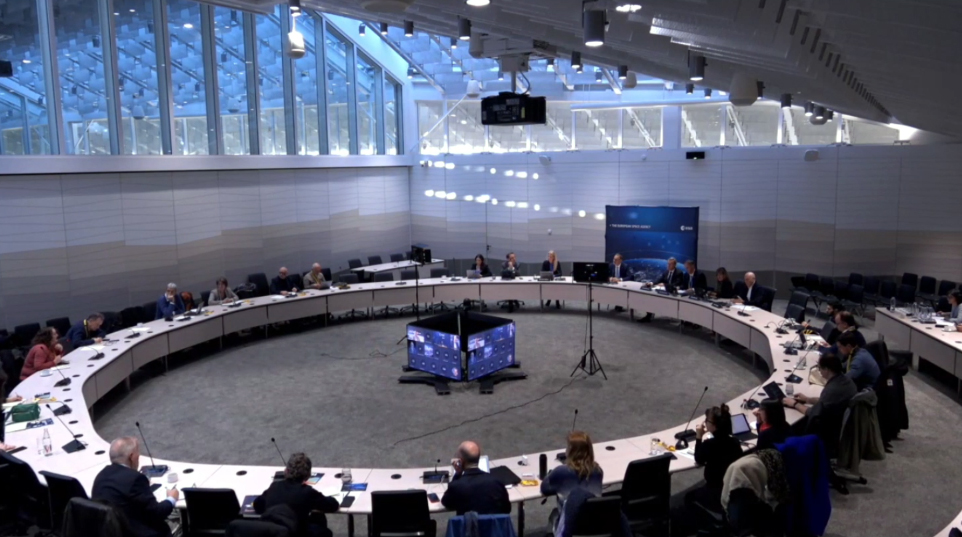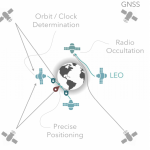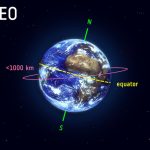Speaking at the 2024 ESA Director General’s Annual Press Briefing in Paris, the agency’s Director of Navigation Javier Benedicto provided an update on ESA satellite navigation activities. About the LEO PNT (Low Earth Orbit, Positioning, Navigation and Timing) program, he said, “We have completed the procurement process for this, one of our flagship programs, approved by the [ESA] ministerial conference in November 2022.
“We are ready to place the contracts immediately after the approval of the Industrial Policy Committee, which is planned at the end of January [2024]. This will be two independent contracts with two large European industrial consortiums, each covering a very ambitious, in-orbit demonstration system.”
The new LEO PNT demonstration systems will broadcast signals over a variety of frequency bands. “This is unprecedented for PNT systems so far,” Benedicto said, “and the work under those contracts will include a very close collaboration with the end user communities, like automotive, just to give you one example, in order to explore the added value of low earth orbit PNT for future autonomous vehicles.”
ESA expects to have the LEO PNT demonstration satellites up and running in the 2025-26 timeframe, which will allow the agency, Benedicto said, “to come to conclusions as to the benefits of this game changer in the field of satellite navigation, which will eventually lead to the procurement and deployment of a full LEO PNT constellation, led by Europe, for global services.”
Galileo goes on
ESA is also continuing to work in close cooperation with the European Commission on the EU’s GNSS, the Galileo program. “We are planning to launch four Galileo satellites in 2024,” Benedicto said. “We currently have 28 satellites in orbit and the system is working very, well with excellent performance, but we need more satellites in orbit in order to reinforce the continuity of the constellation and in order to provide excellent services to users worldwide.”
The Galileo launch schedule has been delayed significantly in recent years due to the collapse of the EU’s relationship with Russia, the lack of access to that country’s Soyuz launchers creating a backlog of European satellites ready for service. “We have ten first-generation satellites on the ground, ready to be launched,” said Benedicto”, four of which will hopefully be launched this year. The remaining six will be launched from 2025 onwards. And we have, in addition, twelve second-generation satellites under production, which will be ready for launch from 2026 onwards.”
Benedicto said the continuing work on the Galileo system is necessary for, “reinforcing the completeness and the quality and functionality of the Galileo system in the future, for the benefit of all users.”






